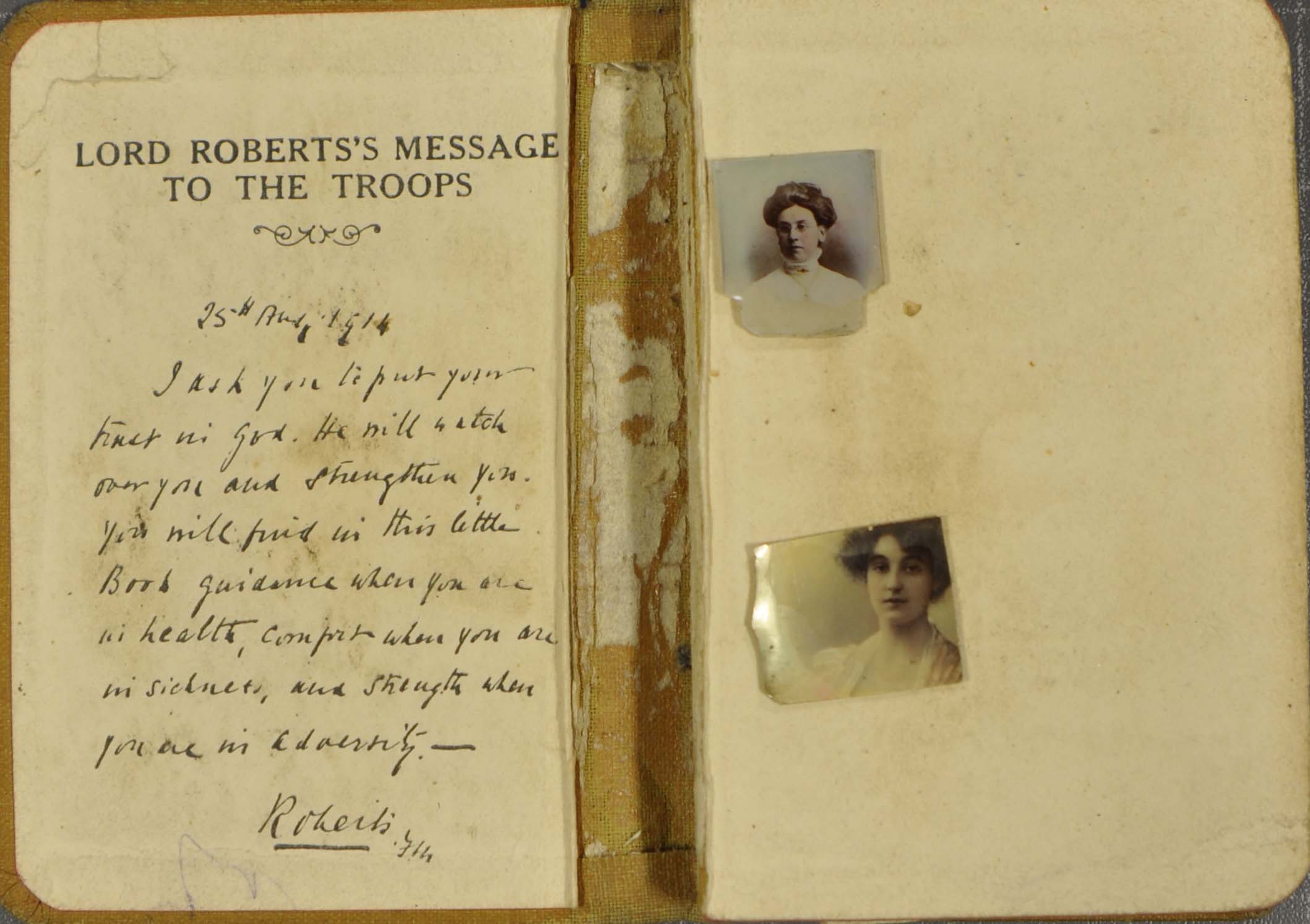In the First World War many soldiers carried at least two books with them for most of the time. The first was their ‘small book’, their pay book with their personal service details. The other book was in many cases a Bible.
As something which individual soldiers could ask for, the First World War testament comes in many forms and was provided by many organisations. One of the consistent passages found in the majority these testaments is not a religious one but one from Field Marshal Lord Roberts.
Dated 25 August 1914. ‘I ask you to put your trust in God. He will watch over you and strengthen you. You will find in this little book guidance when you are in health, comfort when you are in sickness, and strength when you are in adversity.’
Many service personnel must have taken comfort from these testaments and Lord Roberts’ words – but what is interesting about this particular example is what can found tucked within its pages. Not only is this Bible attributable (it has the name of the carrier inside the back cover), it also contains some pressed flowers. I am unsure if they were taken from home to France or were brought back when the soldier finally came home after the armistice.
What is perhaps more poignant are the very small photographs of two women tucked inside the first few pages (see top image). As the photographs are not annotated, it is impossible say with 100% certainty who they were. I would suspect they are the soldier’s wife and mother.
A book which is carried on the person can contain more than words. Look carefully and you will discover hidden treasures. The vendor of this particular Bible was not as curious as you should be.


Some soldiers must have carried diaries as well as, or instead of, the books you mention: diaries which they completed at the front. I believe this was not allowed, but turning a blind eye was perhaps the response of the officers. I know this because my book “Tim’s Wars” (available from your Bookshop) is based entirely on Rifleman Elliott’s diaries, which were written IN INK, and never missed a day from 1914 to 1919 ! I have been unable to find another example of such diligence under fire, and maybe that’s why the former BBC United Nations Correspondent Keith Hindell chose it as his Book of the Year; but surely there simply must have been some others. Do your records indicate this in any way? Being married to his daughter I presume he had a happy knack of getting on with anyone he met (later he nursed the Earl of Athlone in Kensington Palace) , but surely he wasn’t unique, was he?
-Robin E Gregory